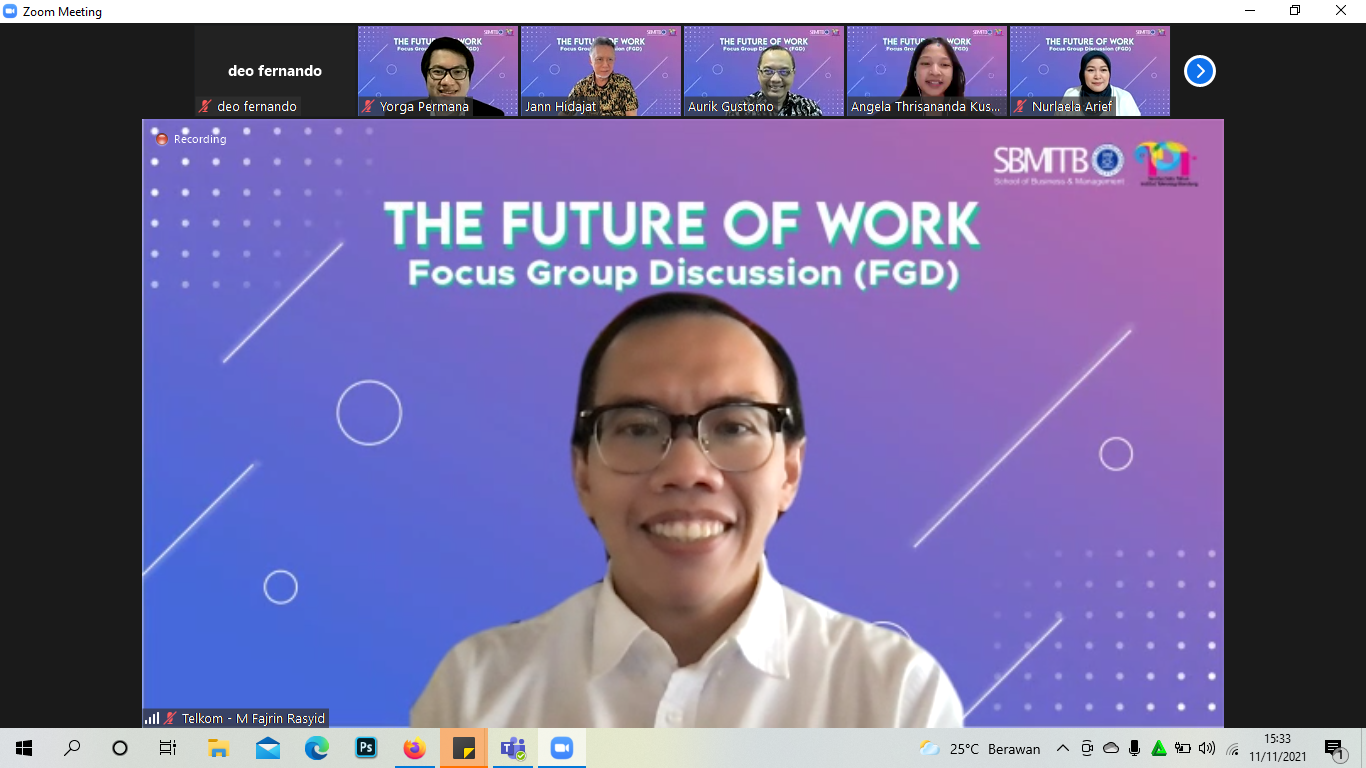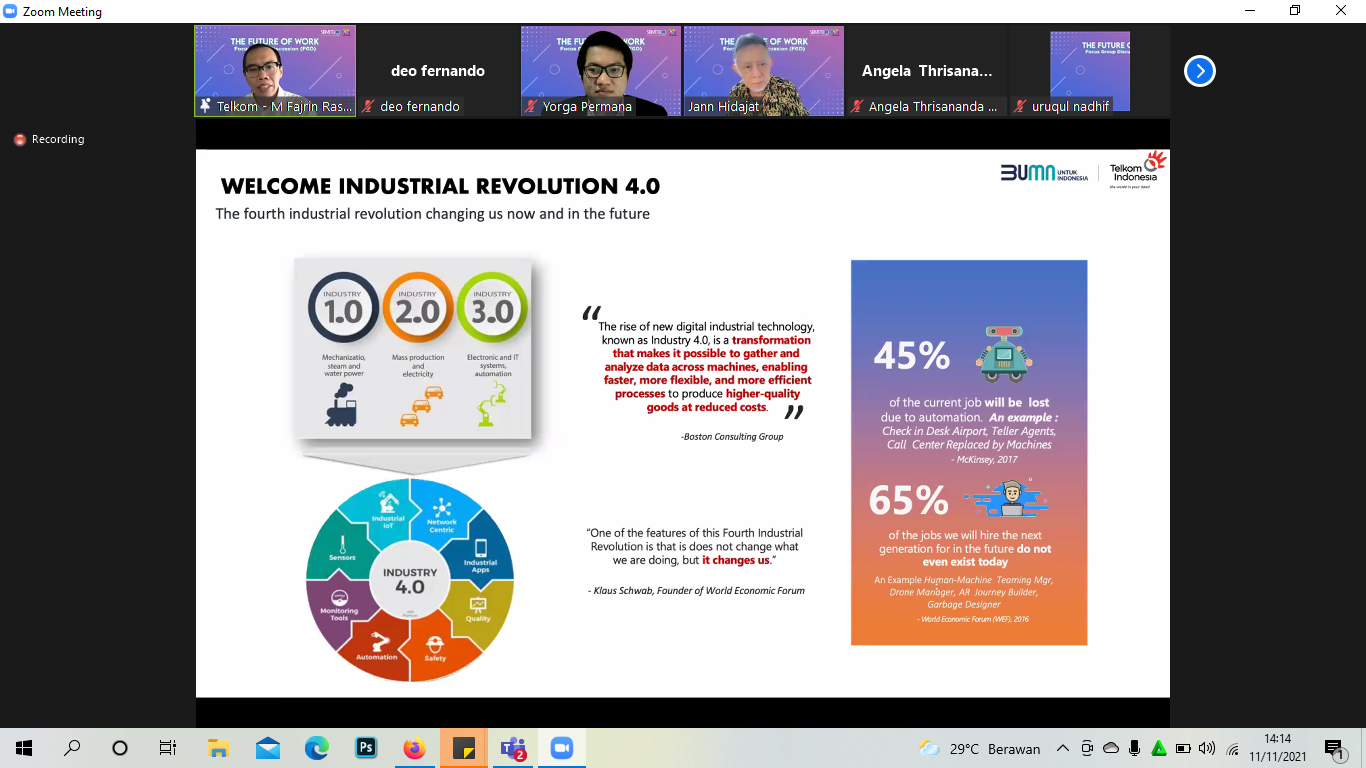The development of the digital industry or known as industry 4.0, has changed the talent need. Research from Mckinsey Global Institute predicted that, in 2030, 15-20 million Indonesian workers would be replaced by automation.
It was said by the Director of Digital Business at PT Telkom Indonesia Tbk. in a Focus Group Discussion (FGD) held by the People and Knowledge Management expertise group of SBM ITB.
 Fajrin was invited to discuss the future of work together with the lecturer and researcher at the People and Knowledge Management expertise group of SBM ITB. It aims to acknowledge the future job requirements for university graduates to adapt to industry 4.0.
Fajrin was invited to discuss the future of work together with the lecturer and researcher at the People and Knowledge Management expertise group of SBM ITB. It aims to acknowledge the future job requirements for university graduates to adapt to industry 4.0.
Fajrin believed that, in the present and the future, Indonesia needs more digital or tech talent. Referring to research by Erkut, Fajrin mentioned that at least 1000+ tech companies were actively looking for tech talent in 2018, an increase of 5x from 2017. However, Indonesia is still lacking in digital or tech talent.
“We have a 600.000 gap per year between tech talent and demand from the tech sector,” said Fajrin by citing the Ministry of Communication and Informatics statement.

At Telkom, Fajrin explained that to fulfill the digital talent need, they equip the employee with digital skills through training. “Because now we lack digital talent, so we organize training for our employees,” said Fajrin.
Besides, the vice-dean of SBM ITB academics, Prof. Dr. Aurik Gustomo, S.T, M.T, explained that in SBM ITB, the student had been taught about digital literacy through several courses, such as business computing and analytics courses providing the student knowledge about digital and tech.
Furthermore, Aurik also explained that at SBM ITB, students are encouraged to collaborate with students in different faculties such as Informatics students to have complementary skills. “We don’t just stop at industry 4.0 but also encourage collaboration,” firm Aurik.
Through collaboration, SBM ITB students do not need to master everything. For example, in programming, they can collaborate with informatics students.





